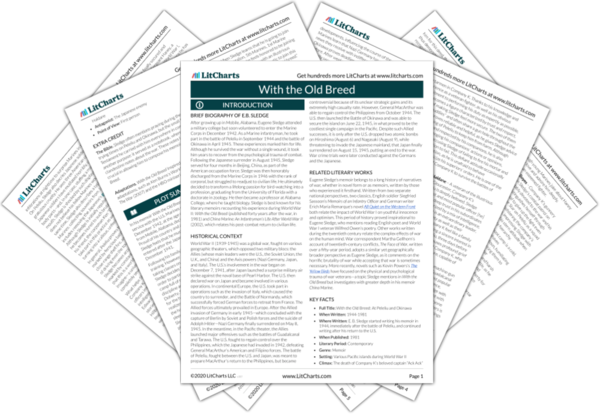AI ToolsNew
Tools to make learning and teaching easier
|
Previous
Part 2, Chapter 8
|
With the Old Breed: Part 2, Chapter 9 Summary & Analysis |
Next
Part 2, Chapter 10
|


Upgrade to unlock the analysis and theme tracking for all of With the Old BreedWith the Old Breed!
Get LitCharts A+